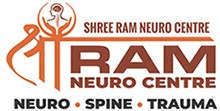Brain Tumours: Understanding the Causes, Symptoms, and Treatment Options
Introduction
Welcome to our comprehensive guide on brain tumours! In this article, we will delve into the causes, symptoms, and treatment options for this complex medical condition. Led by the expertise and experience of Dr. Deepashu, our goal is to provide you with a clear understanding of brain tumours so that you can navigate this topic with confidence. So, let’s get started!
What are Brain Tumours?
When we talk about brain tumours, we refer to abnormal growths of cells in the brain that can be either benign or malignant. These tumours can originate from brain cells or can spread to the brain from other parts of the body. Dr. Deepashu, a renowned neurologist, has treated numerous patients with brain tumours, allowing him to gain valuable insights into the intricacies of this condition.
What Causes Brain Tumours?
The exact cause of brain tumours is still not fully understood. However, certain risk factors have been identified. These include exposure to ionizing radiation, family history of brain tumours, and certain genetic disorders. It is important to note that not everyone with these risk factors will develop a brain tumour, and conversely, brain tumours can occur in individuals with no identifiable risk factors.
Recognizing the Symptoms
Brain tumours can present a wide range of symptoms, depending on their size, location, and rate of growth. Common symptoms include severe headaches, seizures, changes in vision or hearing, memory problems, mood swings, and difficulties in coordination. If you experience any persistent or concerning symptoms, it is crucial to consult with a medical professional, like Dr. Deepashu, for a proper diagnosis.
Diagnosis and Treatment Options
Diagnosing brain tumours requires a thorough evaluation by a healthcare team, which may include a neurologist like Dr. Deepashu. The following diagnostic methods are commonly used:
- Imaging tests: Magnetic resonance imaging (MRI) and computerized tomography (CT) scans are essential in identifying the presence, location, and size of brain tumours.
- Biopsy: A tissue sample may be taken to determine the type and grade of the tumour, which helps determine the treatment plan.
- Genetic testing: This may be done to identify specific gene mutations that could impact treatment options.
Treatment Options for Brain Tumours
The treatment plan for brain tumours depends on various factors, including the type, size, location, grade, and overall health of the patient. Dr. Deepashu and his team devise personalized treatment plans that may include one or a combination of the following:
- Surgery: The surgical removal of brain tumours is often the initial step in treatment. Minimally invasive techniques, such as endoscopic surgery, may be employed where appropriate.
- Radiation therapy: High-energy radiation is focused on the tumour to eliminate or shrink it.
- Chemotherapy: Anti-cancer drugs are used to kill tumour cells or prevent their growth and division.
- Targeted therapy: This treatment approach aims to specifically target the molecules or genetic mutations that drive the growth of brain tumours.
- Immunotherapy: This emerging treatment method stimulates the body’s immune system to fight against cancer cells.
Promoting Brain Health and Prevention
While not all brain tumours can be prevented, certain lifestyle choices may decrease the risk. Maintaining a healthy weight, regular exercise, consuming a balanced diet rich in fruits and vegetables, avoiding exposure to radiation, and wearing protective headgear in risky activities are some measures that can contribute to brain health.
Conclusion
Brain tumours are a complex and challenging condition, demanding specialized care from experienced medical professionals like Dr. Deepashu. By understanding the causes, recognizing the symptoms, and exploring the available treatment options, individuals can face brain tumours with a sense of empowerment. Remember, early detection and prompt treatment can dramatically improve outcomes. Stay vigilant about your brain health and consult a healthcare professional for any concerns.


